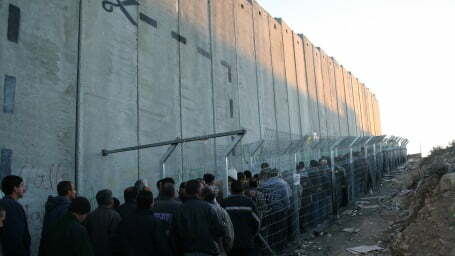Against the background of the difficult events in the south , and before I address the issue of Jordan and the West Bank (as promised in the previous article ), I would like to dwell a little on the significance of support for Jordan's becoming a Palestinian state, as suggested by the ideological right in Israel.
The border between Israel and Jordan, from the Gulf of Eilat in the south to the border triangle in the north, is the longest border of Israel with its neighbors: about 500 km. Since the establishment of the State of Israel, it has usually been the safest border. Threats (including Israel), there was a real interest in maintaining a safe border between it and Israel so as not to provide recent excuses to harm it.In an era of pan-Arab strife, considered Arab leadership was not taken for granted; in the 1950s Jordan prevented infiltrations from the West Bank (which was then Under its control) into Israeli territory, and the Israeli-Jordanian Armistice Committee operated until the summer of 1965, when it provided an umbrella for direct contact between the headquarters of the two armies. Israel for supplying American weapons to the Jordanian army. Since then, and even after the signing of the peace agreement between Israel and Jordan, Israel's consent (and its influence in Congress) has become an essential, and sometimes binding, component.
Three years of gradual loss of control of the Hashemite regime over the kingdom, in the years 1967-1970, provided Israel with a hint to anticipate the scenario of the collapse of the existing order in Jordan. The Jordanian army turned a blind eye, and sometimes even cooperated, with the Palestinian guerrilla organizations in the war of attrition against Israel. Israel has faced the challenge from the Jordanian border with occasional restraint, occasional military operations (the failed "Battle of Karama"), and attempts to locate partners in the Jordanian leadership who will suppress Palestinian terrorism for it. But only as soon as the threat was directed directly against the existing order – rather than against the regime itself – did the Jordanian army enter the violent and final battle. Since 1970, except for short periods, the Israeli-Jordanian border has been quiet and even knew of civilian cooperation in various fields, even before the signing of the peace agreement. The threatening political and military cooperation between Jordan and Iraq of Saddam Hussein faded when Israel, led by Yitzhak Shamir and in coordination with Jordan, exercised restraint during the Gulf War and did not attack Iraq from Jordanian territory. With the signing of the peace agreement between Israel and Jordan in 1994, the fear of the "Eastern Front" was covered in layers of reasonable neighborly relations. Today, Israel's security border – unlike the political border – is in fact the borders of Jordan itself.
In the foreseeable future, Ein Yisrael will continue to be a military power in the region, and Jordan's security and stability will continue to depend on alliances and cooperation with friendships in the region and the world. However, Israel, a graduate of Hezbollah in Lebanon and Hamas in the Palestinian territories, recognizes that instability in its neighbors will directly affect the lives of its citizens and their well-being. The guarantee of the "Eastern Front" depends on safeguarding the interests of the Trans-Jordanian elite in the kingdom no less, and perhaps more, than it depends on the relationship between Israel and the Hashemite regime. This elite in general, and the population it grew up with in particular, has been neglected for many years in the professional literature, and its proponents will say that it has been neglected even by the regime itself in the last decade. This peripheral population lives in poverty, sometimes rebellious poverty, and its livelihood is on the public sector and the military-security establishment. Her resentment at her situation sometimes translates into threats, perhaps jokingly or seriously, because the countries that enjoy the security services she provides – Israel and Saudi Arabia in particular – occasionally need reminders of what awaits them if Jordanian army soldiers' border security is similar to that of Egypt and Lebanon.
The ideological right in Israel must know that long before Jordan becomes a Palestinian state, as he proposes, the long eastern border of the State of Israel will be run by a threatened and anxious Jordanian military and security elite, which will act as best it can – by deed and omission – to defend its interests. If the right is not afraid of a breached and perforated eastern border, in an era in which Israel's borders to the north and south are threatened as they have not been for decades, the Jordanians may say, when the day comes – hello and cheers.

















